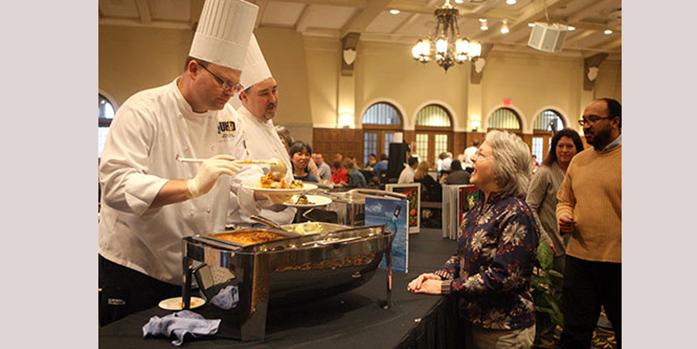By Kayli Reese
The Working at Iowa survey’s results about employees’ thoughts on their workplaces have been released, and they have overwhelmingly positive responses.
University of Iowa Associate Vice President Cheryl Reardon, the chief human-resources officer, said 60 percent of the university’s workforce — 10,606 employees — completed the survey, painting a fairly clear picture of employee opinions. The participants consisted of UI faculty, staff, and merit workers, she said.
The 2016 survey was administered to employees in October. For the last 10 years, Reardon said, the survey has been administered every other year.
Kevin Kregel, the associate provost for faculty, said there were not many surprising findings from the survey; most of the results are consistent to those from two and four years ago. He said he believes this shows the UI has a stable environment in the workplace.
This year, Reardon said, quite a few of the questions had a 90 percent or higher agreement response. Ninety-five percent of employees responded with “agree” answers to knowing work expectations and knowing how their jobs contribute to the university. She said survey results also showed 93 percent of employees surveyed feel UI jobs have excellent customer service, 92 percent would recommend a job at the UI, and 91 percent feel their employers treat them with respect.
Also, Reardon said, positive trends have been seen over the course of the 10 years since the survey began. She said 77 percent of employees said they feel their employers manage conflicts constructively, a 13 percent increase from the first survey. Also, she said, there was an 8 percent increase in received feedback, which Reardon said she finds extremely positive.
The survey indicated some areas had room for improvement, she said, including recognition of employee achievements, promotional opportunities, and workload distribution. To improve these areas in the workplace, she said, human-resource professionals will develop specific plans in each UI unit.
Reardon said she feels surveys such as Working at Iowa are critically important to improving working conditions.
“If we don’t engage employees, we don’t know what’s happening,” she said.
Eean Crawford, an assistant professor of business, said the content of surveys such as Working at Iowa makes a difference in the workplace. When such surveys show employees are engaged in the workplace, he said, companies are more successful, increasing profit and productivity and decreasing injuries and turnovers.
Crawford said studies have shown workers feel better about their workplace after being asked opinions about their jobs.
“It’s in the best interest of the university to allow employees to express their thoughts and feelings,” he said.
Also, he said, employers taking employees’ thoughts into account is equally as important as asking for their opinions. If employers do not act on these opinions, he said, doing so could backfire, creating an unstable workplace.
Kregel said approaches for improvements are being discussed following the release of results, including ways to reach out, engage, and support employees further.
By having surveys such as these, he said, each department can look deep in itself to see where problems may be for employees, a diagnostic tool for employers to use. Kregel said even the smallest show of dissatisfaction can be important to improving the working lives of individuals at the UI.
“A drop of 2 or 3 percent may be an aberration, but it may be something we want to look into before it deteriorates,” he said.



